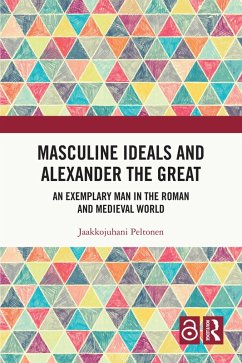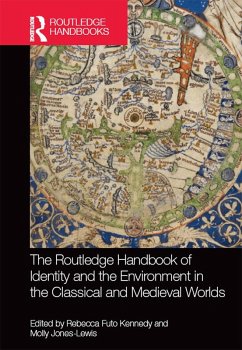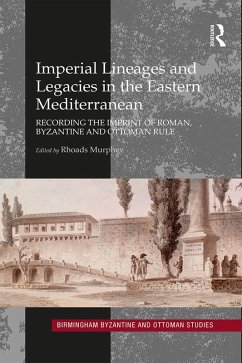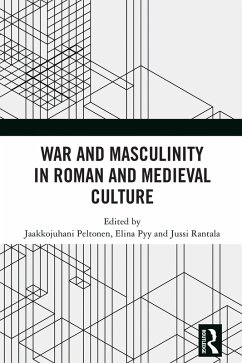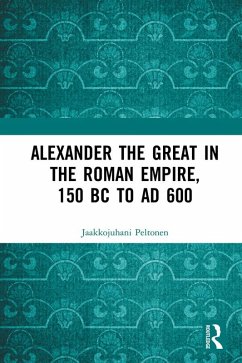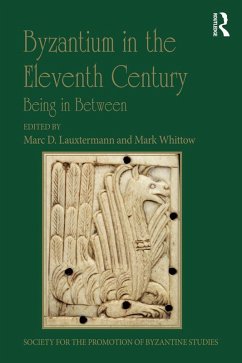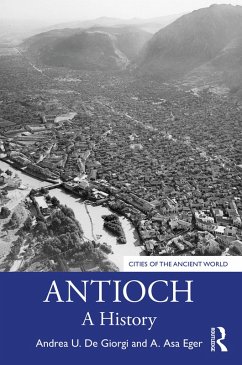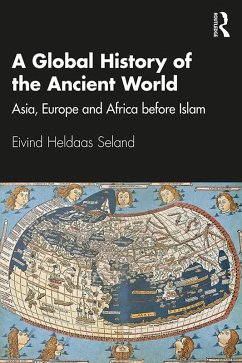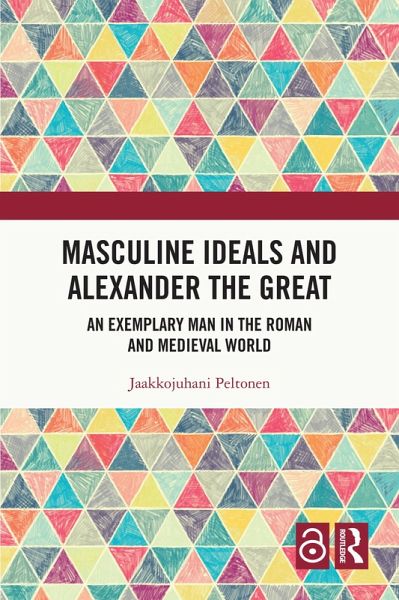
Masculine Ideals and Alexander the Great (eBook, ePUB)
An Exemplary Man in the Roman and Medieval World
Versandkostenfrei!
Sofort per Download lieferbar
0,00 €
inkl. MwSt.
Weitere Ausgaben:

PAYBACK Punkte
0 °P sammeln!
From premodern societies onward, humans have constructed and produced images of ideal masculinity to define the roles available for boys to grow into and images for adult men to imitate. The figure of Alexander the Great has fascinated people both within and outside academia. As a historical character, military commander, cultural figure and representative of the male gender, Alexander's popularity is beyond dispute. Almost from the moment of his death, Alexander's deeds have had a paradigmatic aspect: for over 2300 years, he has been represented as a paragon of manhood - an example to be foll...
From premodern societies onward, humans have constructed and produced images of ideal masculinity to define the roles available for boys to grow into and images for adult men to imitate. The figure of Alexander the Great has fascinated people both within and outside academia. As a historical character, military commander, cultural figure and representative of the male gender, Alexander's popularity is beyond dispute. Almost from the moment of his death, Alexander's deeds have had a paradigmatic aspect: for over 2300 years, he has been represented as a paragon of manhood - an example to be followed by other men - and through his myth, people have negotiated assumptions about masculinity.
This work breaks new ground by considering the ancient and medieval reception of Alexander the Great from a gender studies perspective. It explores the masculine ideals of the Greco-Roman and medieval pasts through the figure of Alexander the Great, analysing the gendered views of masculinities in those periods and relating them to the ways in which Alexander's masculinity was presented. It does this by investigating Alexander's appearance and its relation to definitions of masculinity, the way his childhood and adulthood are presented, his martial performance and skill, proper and improper sexual behaviour, and finally through his emotions and mental attributes.
Masculine Ideals and Alexander the Great will appeal to students and scholars alike, as well as to those more generally interested in the portrayal of masculinity and gender, particularly in relation to Alexander the Great and his image throughout history.
The Open Access version of this book, available at http://www.taylorfrancis.com, has been made available under a Creative Commons Attribution-Non Commercial-No Derivatives (CC-BY-NC-ND) 4.0 license
This work breaks new ground by considering the ancient and medieval reception of Alexander the Great from a gender studies perspective. It explores the masculine ideals of the Greco-Roman and medieval pasts through the figure of Alexander the Great, analysing the gendered views of masculinities in those periods and relating them to the ways in which Alexander's masculinity was presented. It does this by investigating Alexander's appearance and its relation to definitions of masculinity, the way his childhood and adulthood are presented, his martial performance and skill, proper and improper sexual behaviour, and finally through his emotions and mental attributes.
Masculine Ideals and Alexander the Great will appeal to students and scholars alike, as well as to those more generally interested in the portrayal of masculinity and gender, particularly in relation to Alexander the Great and his image throughout history.
The Open Access version of this book, available at http://www.taylorfrancis.com, has been made available under a Creative Commons Attribution-Non Commercial-No Derivatives (CC-BY-NC-ND) 4.0 license
Dieser Download kann aus rechtlichen Gründen nur mit Rechnungsadresse in A, B, BG, CY, CZ, D, DK, EW, E, FIN, F, GR, HR, H, IRL, I, LT, L, LR, M, NL, PL, P, R, S, SLO, SK ausgeliefert werden.




